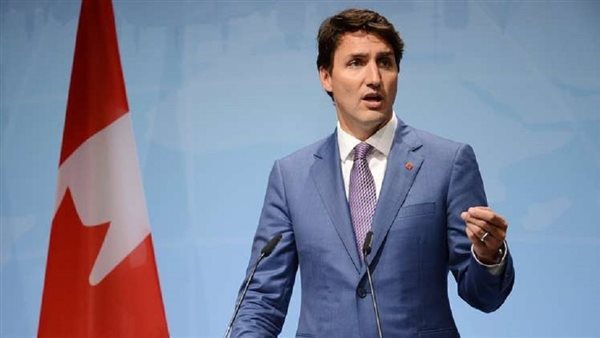Latest News
- Rainfall warnings in British Columbia's Fraser Valley; flood-hit area under pressure again from heavy rainfall
- Pressure mounts on Montreal emergency shelters as winter cold sets in
- Gun attack at Jewish festival on Sydney's Bondi Beach; at least 11 dead, dozens injured
- Four years after Indigenous woman dies in Niagara Hospital, family still waiting for coroner's investigation
- Lawyer: British Columbia RCMP officer should be fired or resign immediately
Latest Ads
-
Jasmine Jewel
Call
-
Omidan group
Call
-
Amir Madanpour
Call
-
Dimo studio
Call
-
Yorkacademy
Call
-
Maryambagheri
Call
-
Shishlix Restaurant
Call

Canada to hit China with tariffs on electric vehicles, aluminum, steel
Canada is trying to match the U.S. with new tariffs on Chinese-made electric vehicles to prevent significant entry into the North American market.
Prime Minister Justin Trudeau outlined the plan at a federal cabinet retreat in Halifax on Monday, promising to raise import taxes on Chinese-made electric vehicles to 106.1 percent on Oct. 1, up from 6.1 percent.
Tariffs on Chinese-made steel and aluminum products will increase to 25 percent on October 15, with a final list of affected products expected to be announced on October 1.
"We are transforming Canada's auto sector to be a global leader in building the vehicles of the future, but players like China have decided to give themselves an unfair advantage in the global marketplace, jeopardizing the security of our vital industries and dedicated automotive workers and "Move Canadian metal," Trudeau said.
"So we are taking action to address this issue."
Chinese brands aren't currently a major player in Canada's EV market, but imports from China have exploded in the past year after Tesla switched from US factories for its Canadian sales to its Shanghai manufacturing plant.
Chinese electric car giant BYD, which stands for Build Your Dreams, established a Canadian corporate entity last spring and has announced plans to enter the Canadian market by next year. The company has been growing exponentially in Europe, where it is also planning new tariffs on Chinese-made electric cars, although those would be less than half of those in Canada and the United States if approved by the European bloc in October.
A senior government official who briefed reporters at the cabinet retreat said the government has been in talks with Tesla about shifting cars destined for the Canadian market from China to its other factories.
In May, US President Joe Biden quadrupled import tariffs on Chinese-made electric vehicles to 100 percent, citing Beijing's unfair subsidies to Chinese electric car makers.
The US Commerce Department is also investigating national security concerns related to Internet-connected vehicles from China and other countries.
The United States in May raised tariffs on a long list of other Chinese products, including solar cells, computer chips, medical equipment and lithium-ion batteries.
To impose tariffs, Canada must go through a consultative process, which it did in July for electric vehicles and steel and aluminum.
Trudeau said the government is considering other measures, including tariffs on computer chips and solar cells, to protect Canadian workers from China's non-market "unfair practices."
news source
Suggested Content
Latest Blog
Login first to rate.
Express your opinion
Login first to submit a comment.
No comments yet.


































